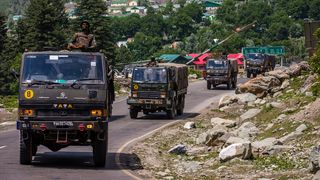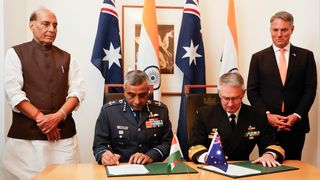Last month, Indian and Chinese troops were involved in the first clash involving the loss of life on both sides since 1975 in Eastern Ladakh. This latest clash between the two most populous nations in the world was preceded by Chinese troops gathering in multiple areas along the disputed border, the erection of new structures near the line of actual control, and ever more expansive Chinese territorial claims at India’s expense.While both sides are taking steps to de-escalate tensions, the ongoing crisis may have fundamentally altered New Delhi’s view of Beijing. The profound strategic ramifications of this could see India shift decisively towards the United States and its allies such as Australia – giving new impetus and relevance to the Australia-US-India-Japan Quad. Given these dynamics:
- Has India’s threat perception of China fundamentally changed as a consequence of the crisis?
- How is New Delhi likely to respond militarily, politically and economically?
- Is India likely to draw closer to the United States and US allies such as Australia?
- Are we entering a new era of deepening cooperation between Quad countries?
- Would India’s strategic shift be significantly altered by a Biden administration?
To discuss these issues, USSC hosted a webinar event featuring Dr Lavina Lee, Senior Lecturer at Macquarie University; Professor C Raja Mohan, Director of the Institute of South Asian Studies; Greg Sheridan, foreign editor at The Australian; and Abhijit Singh, head of the Maritime Policy Initiative at the Observer Research Foundation in India in conversation with USSC Senior Non-Resident Fellow Dr John Lee.
Dr Lavina Lee is a Senior Lecturer in the Department of Modern History, Politics and International Relations at Macquarie University, Sydney. She is the author of the book US Hegemony and International Legitimacy: Norms Power and Followership in the Wars on Iraq (Routledge, 2010), and has published numerous articles, book chapters and commentary on Indian foreign and security policy, nuclear proliferation, US foreign policy, and security relations in the Indo-Pacific. She is also the author of the recently published report, Assessing the Quad: Prospects and Limitations of Quadrilateral Cooperation for Advancing Australia’s Interests.
Professor C Raja Mohan is Director, Institute of South Asian Studies. Professor Mohan is one of India’s leading commentators on India’s foreign policy. Earlier, Professor Mohan was Professor of South Asian Studies at Jawaharlal Nehru University, New Delhi, and at the S Rajaratnam School of International Studies, Nanyang Technological University, Singapore. Among his recent books are Samudra Manthan: Sino-Indian Rivalry in the Indo-Pacific(2013) and Modi’s World: Expanding India’s Sphere of Influence (2015). He writes a regular column for The Indian Express and was earlier the Strategic Affairs Editor for The Hindu newspaper, Chennai
Greg Sheridan is The Australian's foreign editor and one of the nation's most influential national security commentators, who is active across television and radio and also writes extensively on culture. He has written seven books. His latest, God is Good for You: A Defence of Christianity in Troubled Times, is a passionate defence of religious belief in a secular age. Before that, When We Were Young and Foolish was an entertaining memoir of culture, politics and journalism. As foreign editor, he specialises in Asia. He has interviewed presidents and prime ministers across the world.
Abhijit Singh is a senior fellow and heads the Maritime Policy Initiative at the Observer Research Foundation in India. A maritime professional with specialist and command experience in front-line Indian naval ships, he has been involved in the writing of India's maritime strategy (2007). He is a commentator on maritime matters and has written extensively on security and governance issues in the Indian Ocean and Pacific littorals. His articles and commentaries have been published in The National Bureau for Asian Research (NBR), the Lowy Interpreter, the World Politics Review, the Diplomat and CSIS Pacific Forum.
Dr John Lee is an adjunct professor and non-resident senior fellow at the United States Studies Centre. He is also a senior fellow at the Hudson Institute in Washington DC. From 2016-2018, he was senior adviser to the Australian Foreign Minister, the lead ministerial adviser for the 2017 Foreign Policy White Paper, and her principal adviser on Indo-Pacific strategic affairs in the lead-up to the reinstitution of the Quad in 2017.








